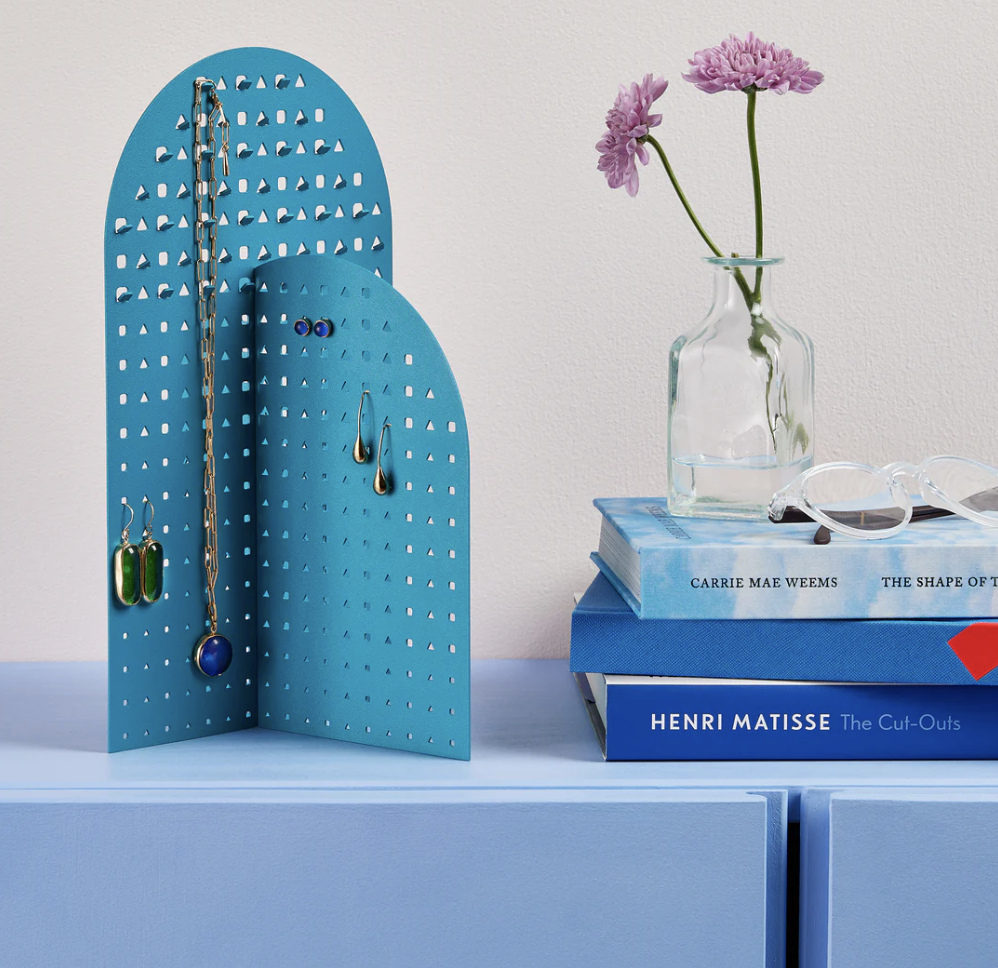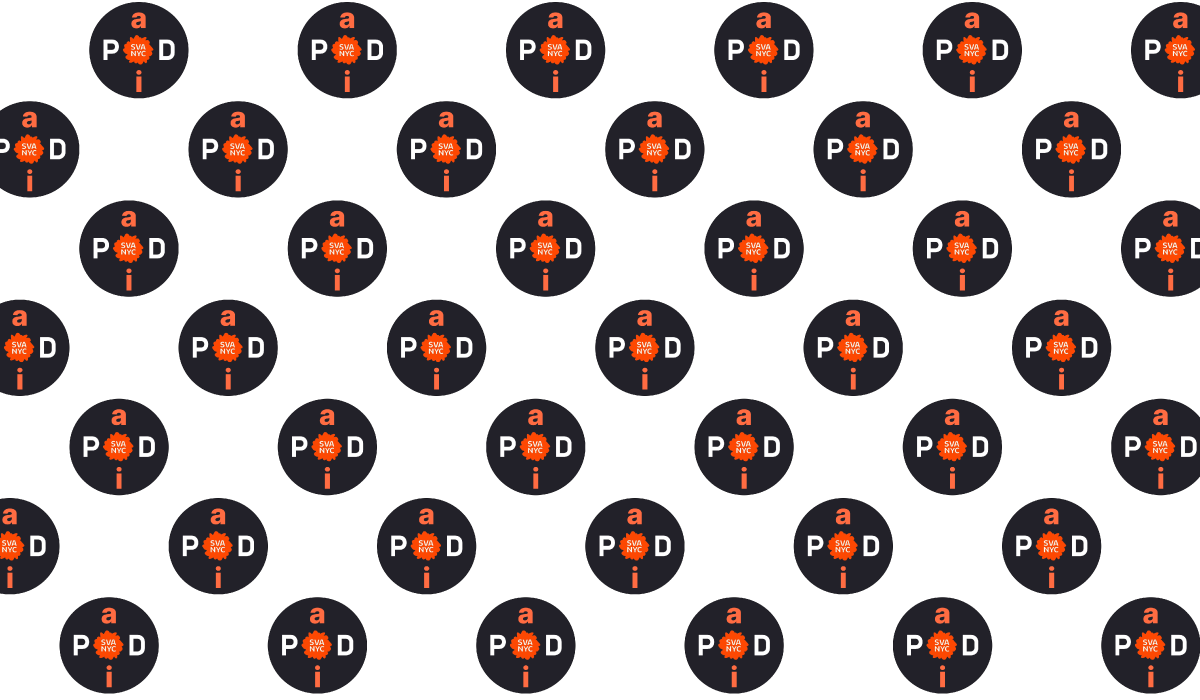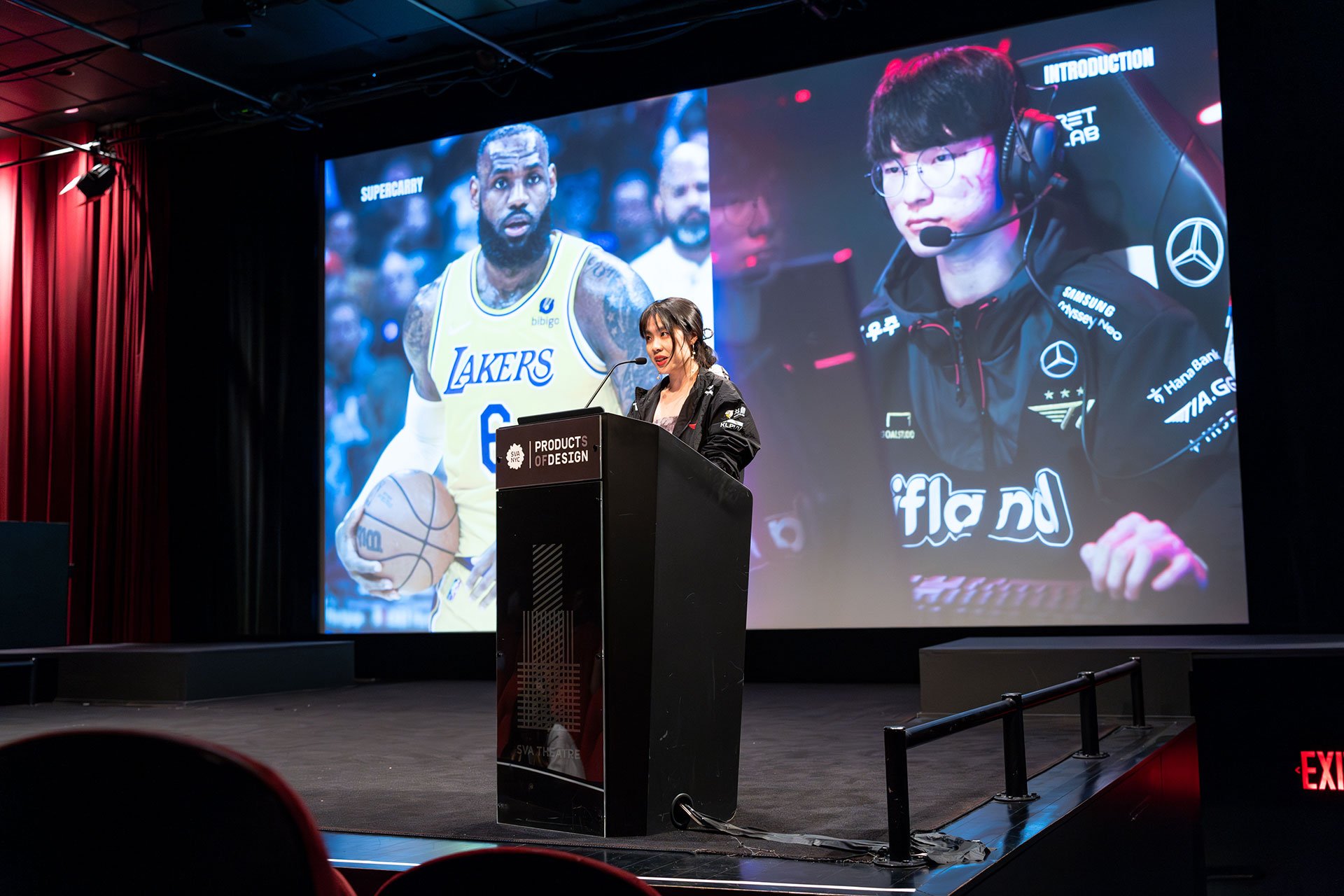Department Blog
Department news, events, and snapshots of student life at SVA in New York City.
Rolling admissions still open!
〰️
Rolling admissions still open! 〰️
Featured Posts
All Blog Posts
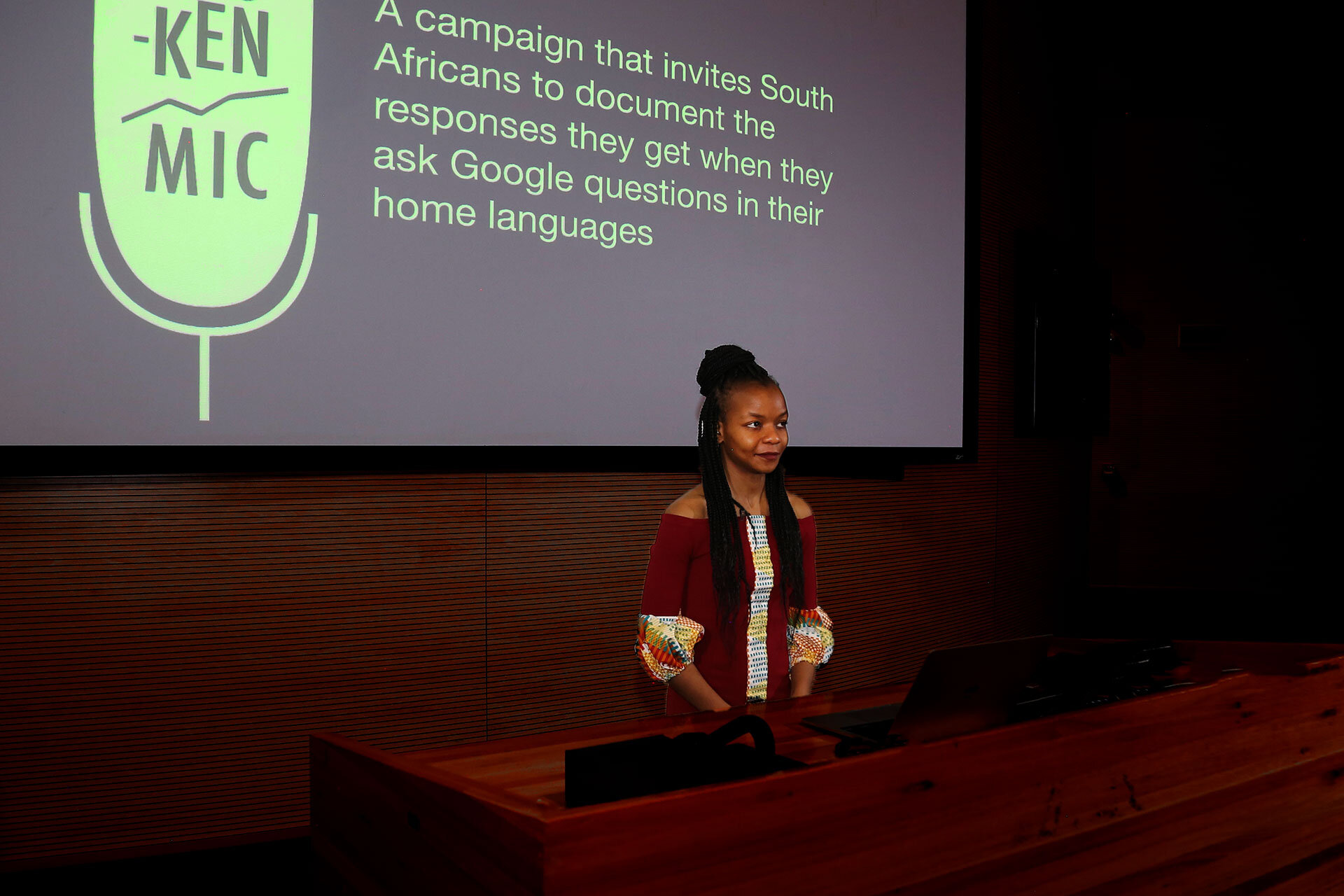
Language In Language Out: Natural Language Processing in the Context of Indigenous South African Languages
As a digital native who cannot imagine life without the conveniences of technology, Kgothatso Lephoko observed that of the 11 official languages in her home country South Africa, there are 9 indigenous languages that are underrepresented in the technology used thus limiting access to 46 million people, representing 79% of the population. Common applications of natural language processing (NLP), which is broadly defined as the ways in which computers understand and communicate with human language, include spell checking, machine translation, search engines, chat bots and voice interfaces such as Siri and Alexa.
Kgothatso’s thesis, Language In Language Out: Natural Language Processing in the Context of Indigenous South African Languages, explores the extent to which indigenous language speakers in South Africa are disadvantaged by technologies that exclude their languages and how she can use design to contribute to the development of more equitable tools to address this problem.
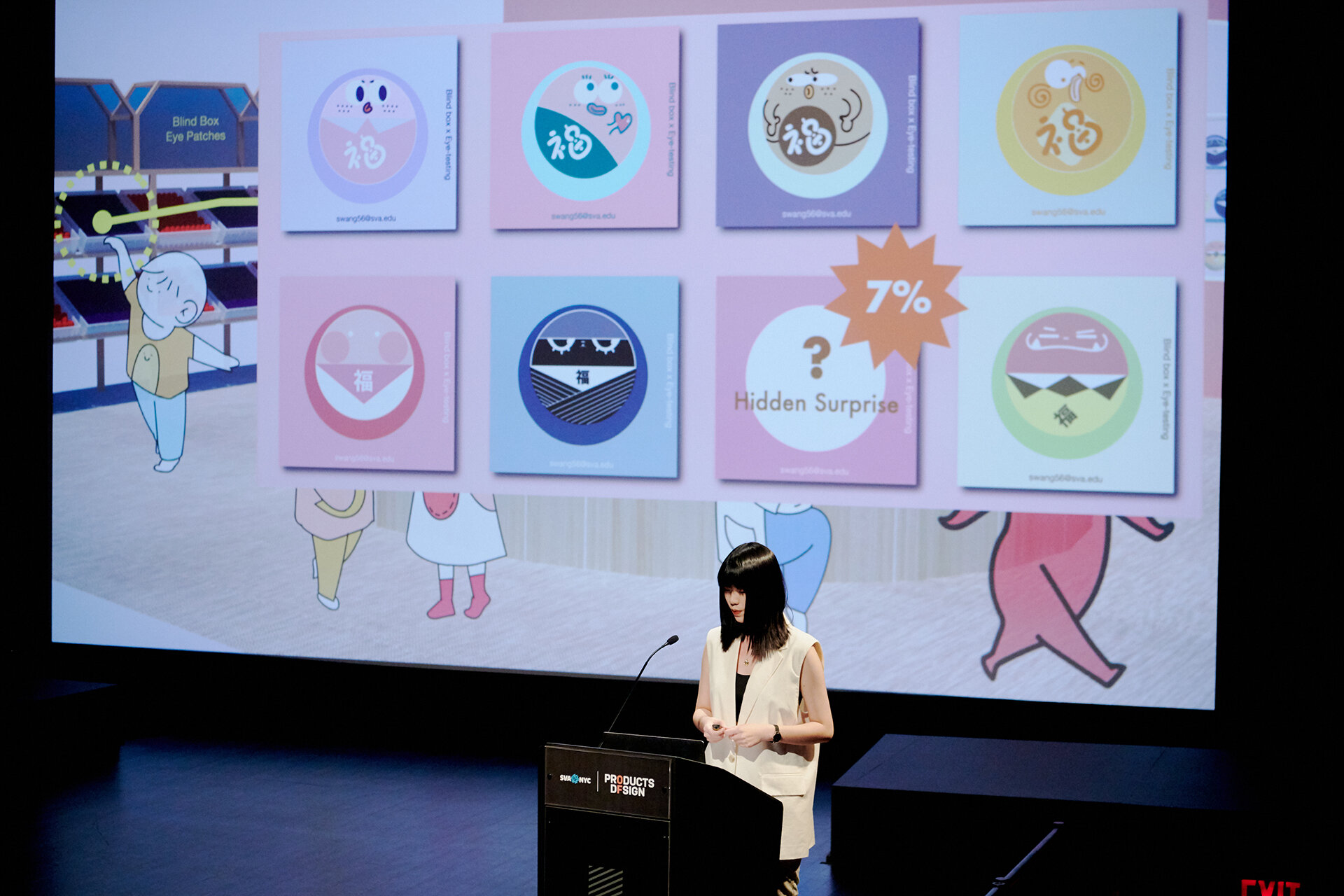
Buying Possibilities: The Double Edge of Blind Box Culture
In Shuyi Wang’s thesis, Buying Possibilities: The Double Edge of Blind Box Culture, she explains that "Blind Box'' is not a new concept; it is a popular buying mechanism in which users make a purchase without knowing what they have bought—at least, not until after they’ve opened it. The positive mechanism of the blind box is its ability to surprise people with the unexpectable. The negative is its ability to make users addicted and trigger impulsive behavior. She expands her thesis to include the social impact of the smartphone as a virtual blind box. Through her designs, she seeks to utilize the blind box’s positive mechanism to motivate and inspire children, and to help people disconnect from their phones in order to better focus and socialize. Her goal is to combat the pitfalls of the blind box’s negative mechanism by revaluing items and reintroducing the joy of surprise, thereby reinvigorating the beauty and power of real-life interpersonal connections.

Sparks: Marriage, Connection, and Design
All relationships require work, and the effort one puts into maintaining a marriage directly impacts its quality. Crystal Lo's thesis, Sparks: Marriage, Connection, and Design, presents solutions to improve satisfaction and rekindle passion in long-term marriages when couples feel their relationships are strained.

Meet You on the Steps: Museums as Social Experiences
Yiming Xu’s thesis, Meet You on the Steps: Museums as Social Experiences, reimagines the visitor experience and impression of art museums. Her thesis questions how design can balance the power relationship between institution and visitor, facilitate visitors' autonomy and satisfaction, cultivate art accomplishments through daily life, and eliminate cultural barriers and stereotypes surrounding conventional art museums.

The Scattered Billion: Designing for the Grey Economy
Having lived most of his life interacting with the local economy in Mumbai, Siddhant Goyle began examining the complex and scattered nature of what many experts call "the underground economy." The informal sector has to be classified as illegal, unlawful, and underground by nature because vendors and businesses are operating without a legal permit. This permit enables one to sell goods or services within defined legal parameters. Furthermore, it mandates the charging and payment of taxes, thereby ensuring that the holder fulfills their responsibilities to the government while operating a profitable business. Siddhant's thesis, The Scattered Billion: Designing for the Grey Economy, interrogates the informal sector's scattered nature and the people interacting with it daily.

Disintermediation and Design: Customers, Producers, and the Platform
Due to the maturity of technologies such as search engines and digital platforms, information transparency is at an all-time high. Whenever an individual has a specific need, he or she can easily search online to locate a provider who can directly fulfill that need rather than go through a middleman.
This phenomenon, called disintermediation, is the subject of Yufeng Peng’s thesis. In Disintermediation and Design: Customers, Producers, and the Platform, Yufeng explores this topic from three angles: career planning for Chinese students, physical manufacturing, and the food industry. He aims to help consumers fulfill their needs by building collaborative relationships with service providers instead of passively accepting whatever dominant companies and large corporations provide.

Second-Hand, Second-Love: Reimagining Sustainable Fashion in China
In her thesis, Second-Hand, Second-Love: Reimagining Sustainable Fashion in China, Zhenxuan Wang set out to decipher why Chinese consumers attach such a stigma to second-hand clothing. She found that emotional attachment, self-fulfillment, and the lifespan of apparel can lessen or remove this stigma, and therefore play an essential role in the market's sustainable growth and evolution.
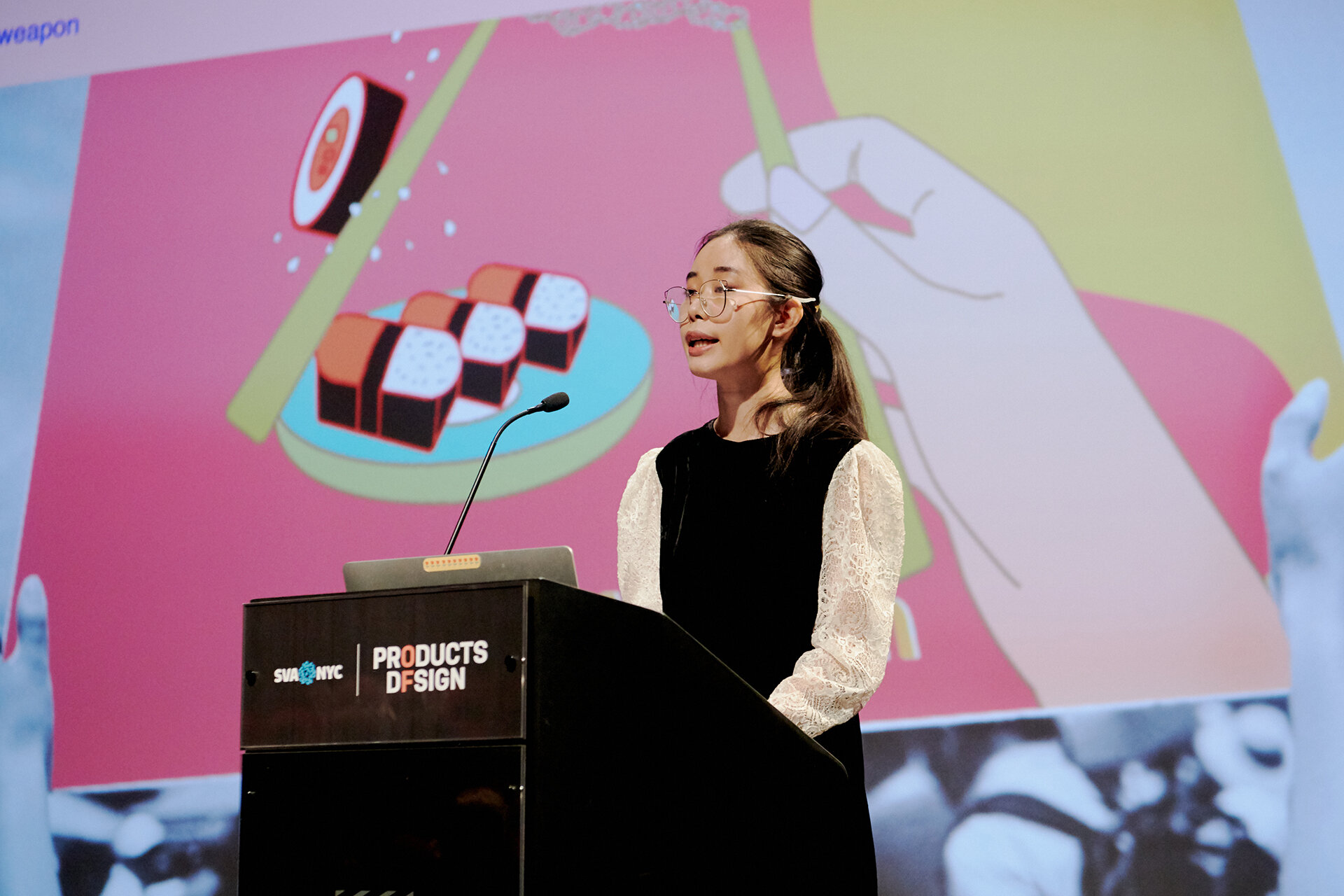
Uplifting/Lifting Up: Asian Power From Our Own Hands
Since arriving in the United States nearly two years ago, Tingyu "Danica" Dou has been troubled to hear that when people talk about race, the matter is often quite literally Black and White. Despite the fact that anti-Asian racism has always been present in the U.S., it is rarely discussed. The COVID-19 pandemic outbreak triggered a sharp increase in racist statements and hate crimes against Asians in Western countries. According to the non-profit group Stop AAPI Hate, nearly 4,000 incidents have been reported nationwide since the pandemic started. This fueled Danica's decision to dedicate her thesis, Uplifting / Lifting Up: Asian Power From Our Own Hands, to fighting discrimination against Asian Americans.
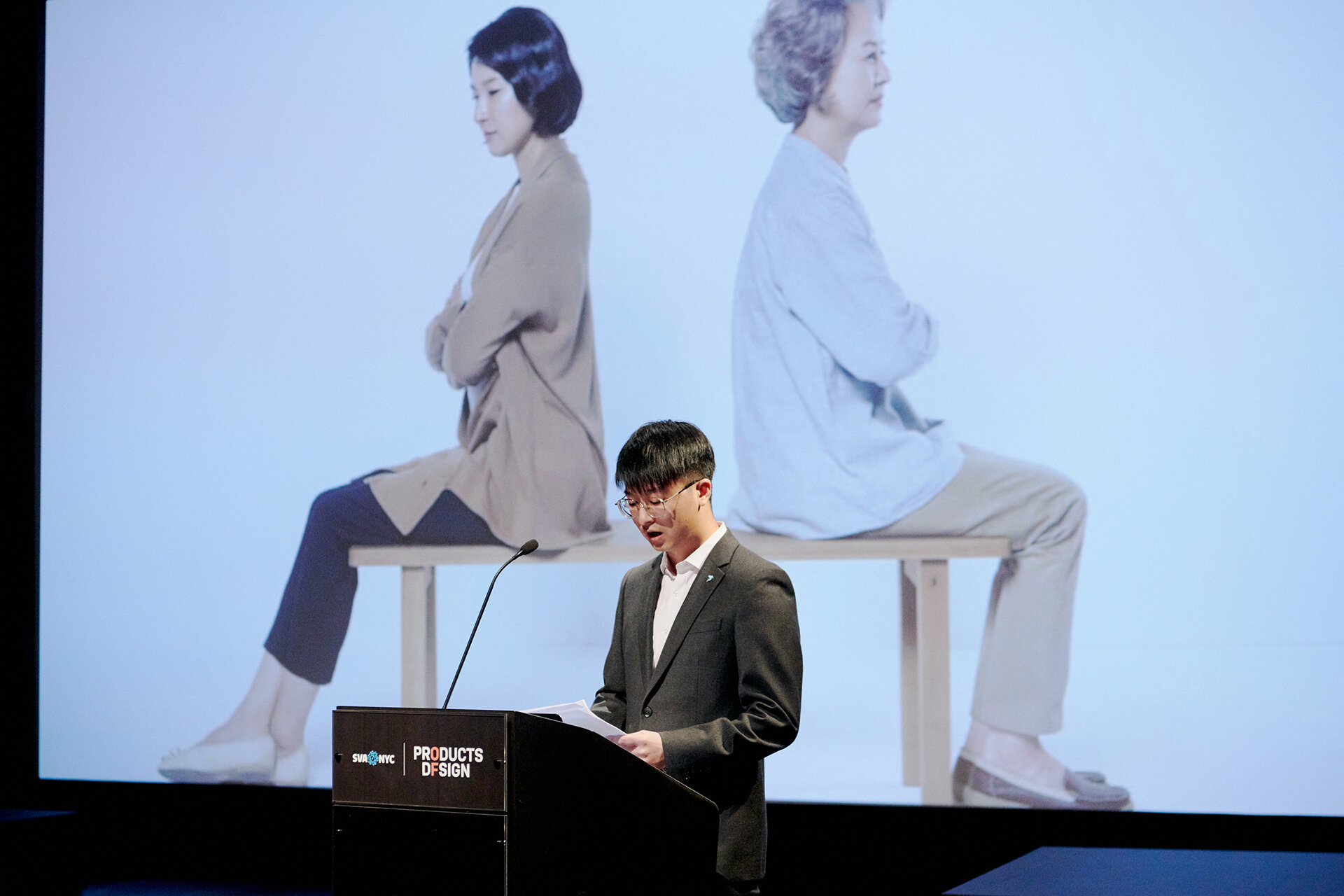
Inter-Generate: A Set of Design Offerings for Chinese Empty Nesters
In his thesis, Inter-Generate: A Set of Design Offerings for Chinese Empty Nesters, Hang “Joey” Yuan deconstructs the "empty-nest syndrome" from three perspectives: medicine, interpersonal relationships, and philosophy. He argues that this is more than a syndrome —it's also a state of mind. Through his research, he discovered that sharing is an effective way to help the elderly change their negative mindset towards living apart from their adult children.


